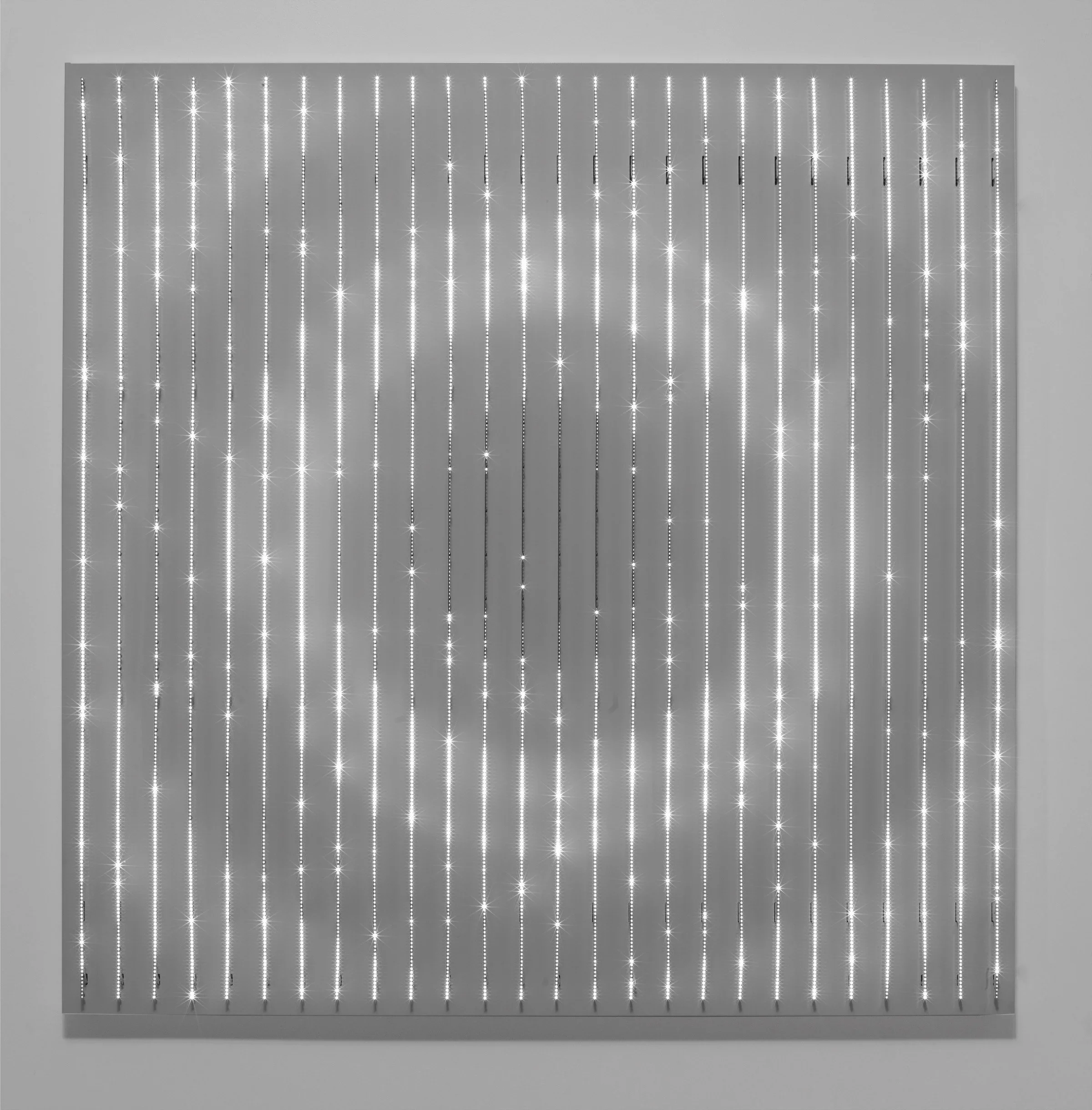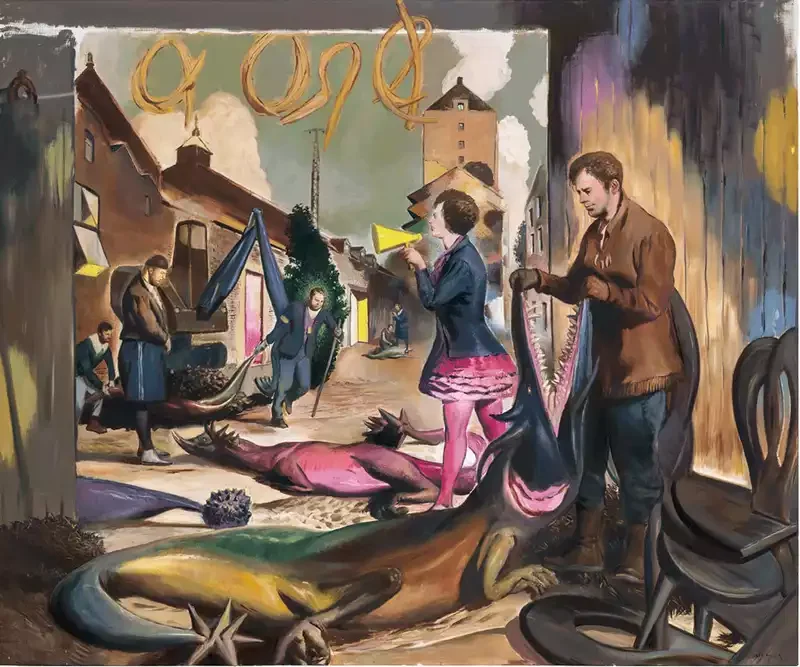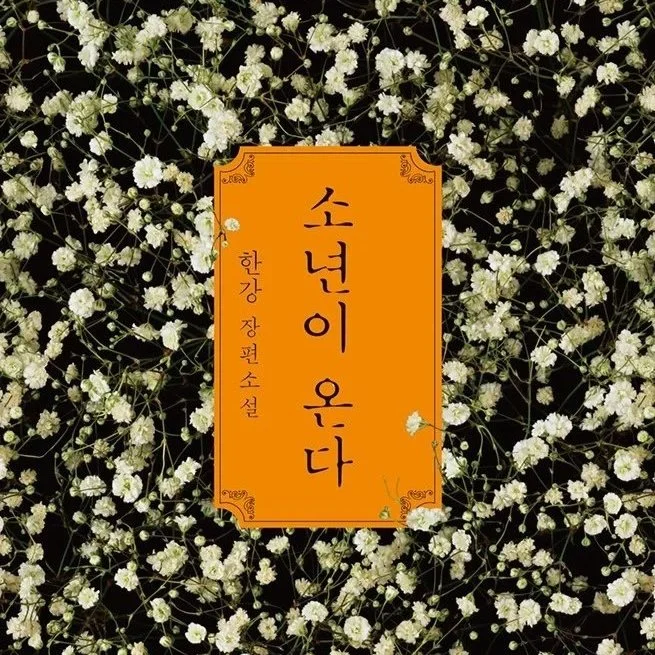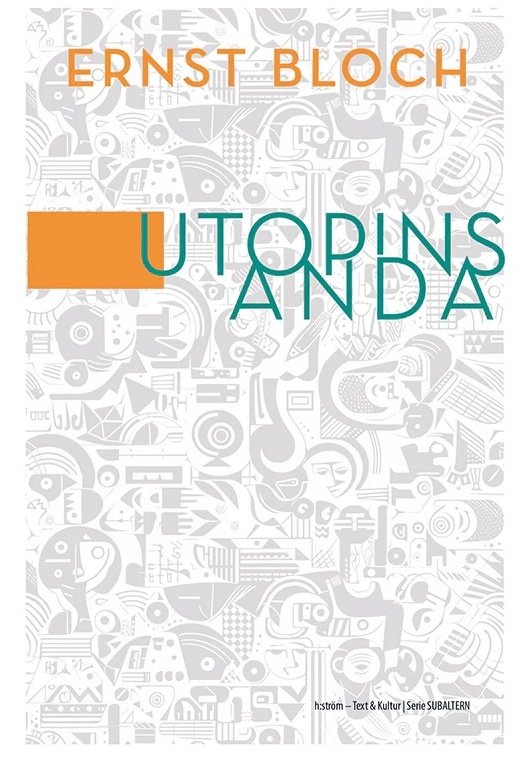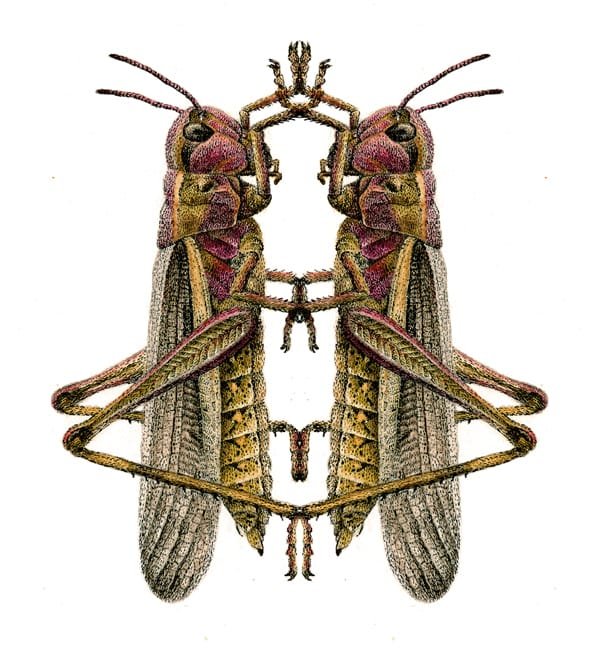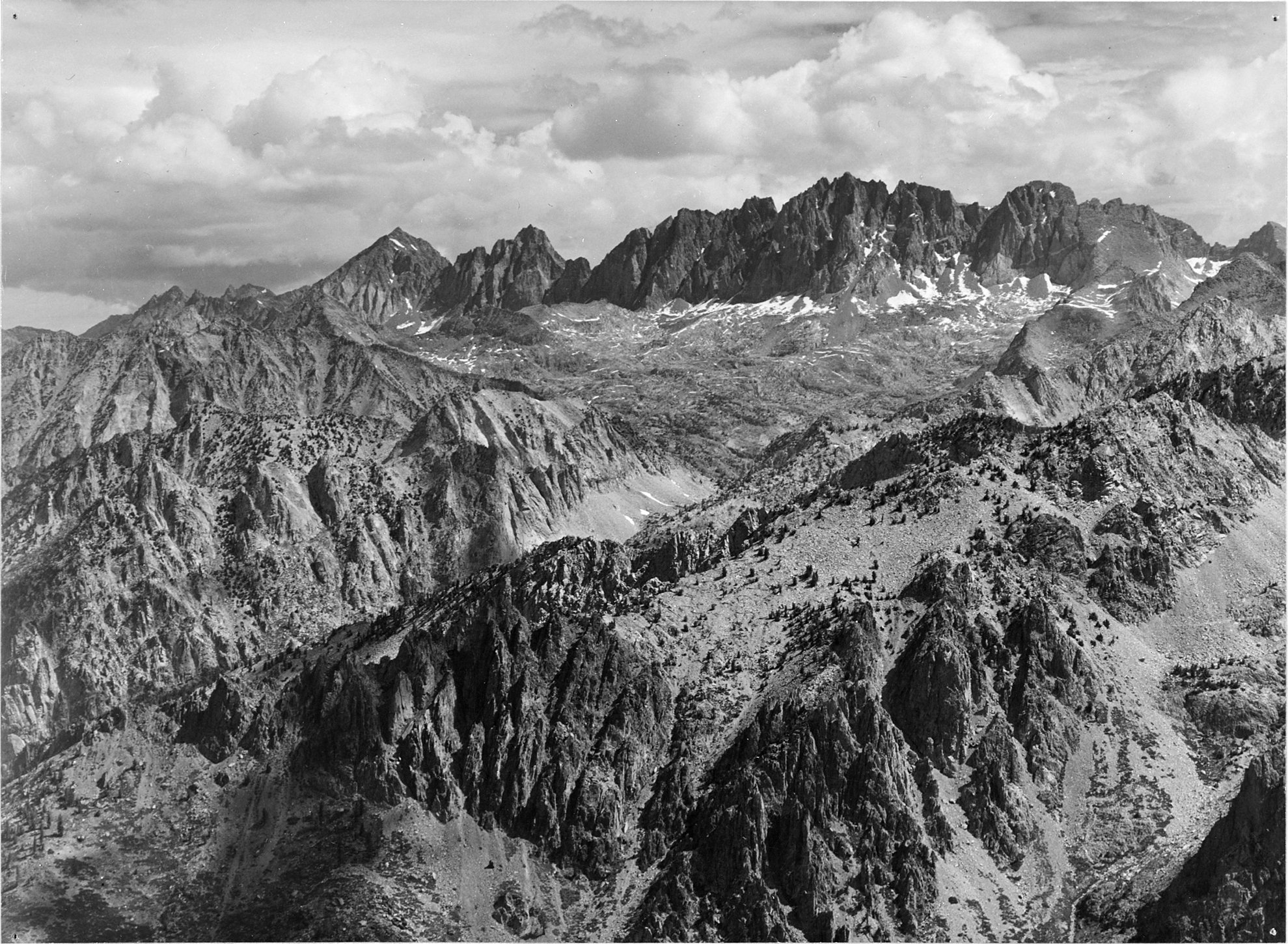Resisting Realism with (and through) Theology
/This is the first in a series of texts on Mårten Björk’s The Politics of Immortality in Rosenzweig, Barth and Goldberg (Bloomsbury 2022). First out to comment is Gian Giacomo Fusco. Further instalments to come.
…two men, whose names were Eldad and Medad, had remained in the camp. They were listed among the elder, but did not go out to the tent. Yet the Spirit also rested on them, and they prophesied in the camp. A young man ran and told Moses, “Eldad and Medad are prophesying in the camp.”
Joshua son of Nun, who had been Moses’ aide since youth, spoke up and said, “Moses, my lord, stop them!”
But Moses replied, “Are you jealous for my sake? I wish that all the Lord’s people were prophets and that the Lord would put his Spirit on them!”
(Numbers 11, 26-29)
It is now commonplace to indulge in the self-consolatory narrative of the lost future; that form of realism according to which utopian/progressive visions have become somehow unthinkable. In the impending global catastrophe that humanity seems to be destined to sleepwalk toward, political (and ethical) imagination appears as run aground on the ideological quicksand of late modernity – liberal democracy, the ideology of rights, the ethic of work, the nurturing of the mega-machine of Capital, and of all those fictional masters that are making our life so miserable. The spirit of modern civilization – with its faith in gradual but irresistible progress toward better living conditions, pushed by technological innovations, scientific knowledge, and the dialectic between traditional forms of authority and prophetic contestations of power – left the stage to a minor realist mood, for which no alternative forms of life are envisaged, and the future is either catastrophe or simple re-making of the present (or of the good old days).
Such a form of realism represents the background against which Mårten Björk’s The Politics of Immortality in Rosenzweig, Barth and Goldberg (Bloomsbury 2022) reconsiders the political essence of the modern concept of immortality and affirms the strategic function of theology as a source for the imagination of alternative conceptions of life. Indeed, the ‘politics of immortality’ that Franz Rosenzweig, Karl Barth, and Oskar Goldberg, placed at the core of their theological speculations are revealed by Björk as a strategy to ‘resist’ the secularised reduction of ‘life’ to facts of ‘biology, culture and history’ and as a ‘refusal to identify human existence with political concepts such as race, state and nation’ (p. 3).
The epoch in which the three thinkers lived and worked saw the establishment of a secularised and materialist idea of life, according to which human living is reduced biological factors and framed in terms of the struggle for survival. But this was also the moment when life as such – the mere fact of living – started to be viewed as the primary object of political power and governmental practices; and the state form becomes the form of life of a given people – intended not as a juridical ethical formation but as a living substance (the nation, blood, and soil). From this secularised point of view, the idea of immortality remains either a matter of ‘longing for survival rather than a belief in a future judgment of the inequities of the world’ (ibid.) or as something pertaining to the memory of the eternal life of the nation/people. Through an erudite reading of their major works, Björk demonstrates how Rosenzweig, Barth, and Goldberg conjured up a political vision of life and immortality that tries to resist and go beyond the emerging biopolitical paradigms: indeed, ‘immortality’ represents for them a ‘way to question the fall of our species into the cycles of a civilization that knows of no other life than one that, ultimately, is ruled by scarcity, need and the technological means’ (p. 190).
In the first chapter, Björk exposes how Rosenzweig’s speculation over eternal life is oriented by a sense of human history as a proceeding toward what the German philosopher called a ‘life beyond life’: a dimension, opened by revelation, that transcends the historical/natural creaturely coordinates (temporal [past and present] and existential [life and death]) of the human. In Rosenzweig’s The Star of Redemption, ‘there is an evolution…towards a perspective on the life of the creature from the vantage point of eternity…given by death’, which invites us to believe in ‘a life beyond life’ as a renewal of the ‘world of the creature struggling against death and thereby a redemption of the life caught in history’ (p. 35). Such a form of ‘life beyond life’ assumes the guise of an ‘absolutely inclusive we’ (p. 52) for which the world becomes the borderless space of collective life beyond the state form. Eternal life allows, in this perspective, to consider a form of ‘anti-statist geopolitics and those who affirm such a strange sabbatical existence beyond both life and death must do the impossible and begin to transcend the struggle for life’ (p. 192) that earthly powers impose on human existence.
The theology of Barth, hinged as it is upon an affirmation of death (considered as an essential part of the labouring of God’s providence) is portrayed by Björk as establishing a sort of political thanatology, for which the unfolding of the history of creation ‘mirrors’ the life, death, and resurrection of Christ. From this perspective, death becomes a determinant part or stage of the human living experience, and it is by dying that mortals become truly part of God’s eternal life: ‘Everything living in time is destined to die and thereby enter the eternal’ (p. 116). Such an eternal dimension of life inaugurates ‘a new metabolic relation to nature. It is a form of life that through its superabundance does not need to make choices ruled by scarcity’ (p. 83), a more joyful existence emerging out of a dying world. For Björk, the theological insight developed by Barth represents a very relevant ‘prolegomenon to a theology of extinction, a contemporary theology that confronts the cosmological problem of the end of not only the human species but of the coming destruction of the universe as such’ (p. 117). Indeed, Barth ‘urges us to hope that the cosmos shall be resurrected as…a world undisturbed by death’ and to live a life based on the ‘imperative that we should not only live in relation to the world of the dead and the living but even more seek to reflect the abundance of the unlived and the paradisal’ (ibid.).
The oft-neglected theological and philosophical speculations of Goldberg point toward what Björk describes as a ‘politics of exile’, of desertion from the catastrophes of the capitalist modes of life. In his rather unorthodox interpretation of Jewish history, myths, and tradition, Goldberg sustains that the Torah ‘was a manual for the immortalization of creaturely existence’ (p. 151), the task of which is ‘to make the world perfect and therefore immortal’ (p. 141). The history of the Hebrews narrates, from his perspective, the life of a human community that had abandoned traditional forms of communal organizations to live in relation to a God whose commandments were aimed at overcoming the biology of normal life. The life and history of the Hebrews hinted at the human ‘possibility of opening up to a new anthropogenesis…and produce a new human community’ (p. 155), capable of escaping the entropic development of technological civilization toward catastrophes epitomized in the world wars. Intended as a form of biological universalism, immortality for Goldberg encapsulates the image of an exodus/exile/withdrawal from the disasters of the capitalist, industrialized world: to ‘die away from this life, life here and now, in order to become another form of animal’ (p. 196).
Far from being simply a reconstruction of the politics of immortality in three authors, who had a long-lasting impact on the European culture of the 20th century, Björk’s book is a fervent defence of theology as an essential intellectual practice for the rethinking the life of humans in troubled times and for imagining potential futures. As he writes in concluding the volume, ‘we humans are certainly creatures who live in the order of being we are also always entering the sphere of what could be. Reality is divided by that which is and that which could and even more should be, and theology is an expression of this power of transcendental imagination’ (ibid.). Blinded by the darkness of the times we are living in, in which a series of disasters followed one another without interruption against the background of the announced catastrophe of the Anthropocene, we are stuck on thinking how to amend what is: theology potentially offers the tools to consider a way out to what could and should be. This is the ultimate message that Björk’s work conveys. A message of hope; an invitation to reconsider the limits inside which we have confined our conception of what ‘to live’ mean.
Gian Giacomo Fusco


